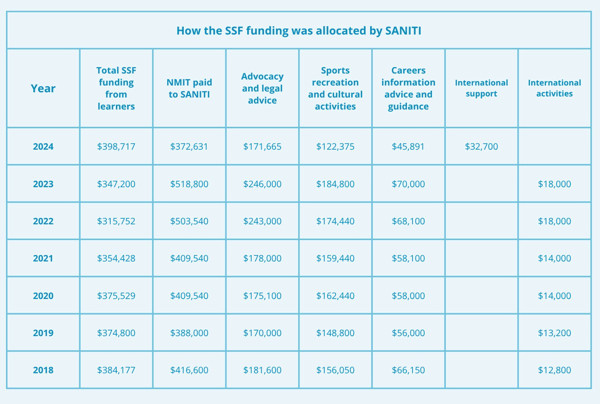NMIT works closely with your Student Executive to make sure learner voice is part of decisions about student life and services. We value the role SANITI provides in delivering independent advocacy, advice and guidance for learners. We do not propose changing the relationship we have with SANITI regarding those services.
We are proposing to retain a portion of the SSF in 2026 to ensure NMIT can support learners with financial, wellbeing, and connection to future work opportunities. This would include working collaboratively with the Student Executive to ensure these activities reflect the needs of the learner population at NMIT. We’ve outlined more details about these activities below.
Financial and well-being support
We know that sometimes unexpected costs can make studying harder. We want to make sure help is available when you need it. Possible support includes:
- Emergency hardship fund: quick help if you unexpectedly face a cost you have difficulty managing, such as rent, transport, or medical expenses.
- Support with living costs: small grants or vouchers for things like food, course materials, or childcare.
- Health and wellbeing assistance: help with the cost of counselling, doctor visits, or prescriptions.
- Financial guidance: budgeting advice and connections to community or iwi services for extra support.
Building connection and belonging
We want NMIT to be a place where everyone feels they belong. This funding would also support activities that help you connect with your tutors, classmates, and the wider NMIT community. We believe by supporting programme representatives with joint decision-making for their curriculum area, our learner success team is well placed to ensure events reflect the desires of learners. This could be events such as:
- Orientation and whakawhanaungatanga (relationship building): meet your tutors and other learners at the start of each term.
- Wellbeing and opportunities to connect as ākonga: shared lunches, sports days, or cultural celebrations where everyone is welcome.
- Learning hubs (tuakana teina): drop-in study and connection spaces supported by tutors and learner mentors.
- Internships and connections to local employers: workshops or evenings with employers and former graduates to explore work opportunities.



